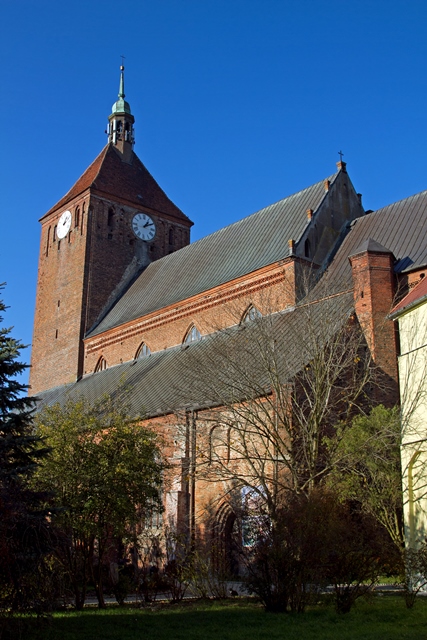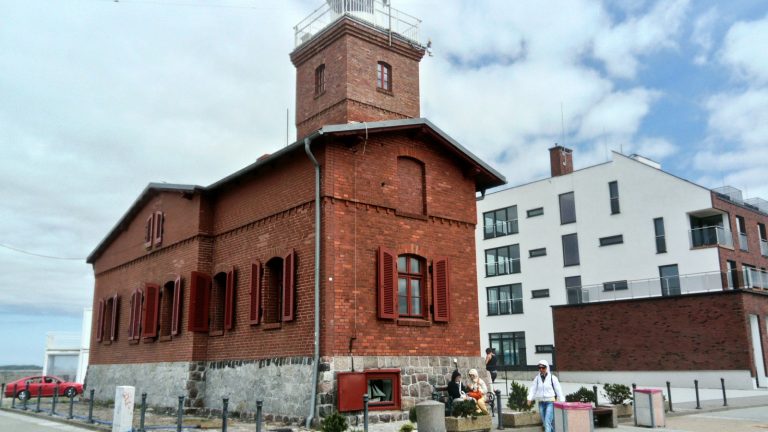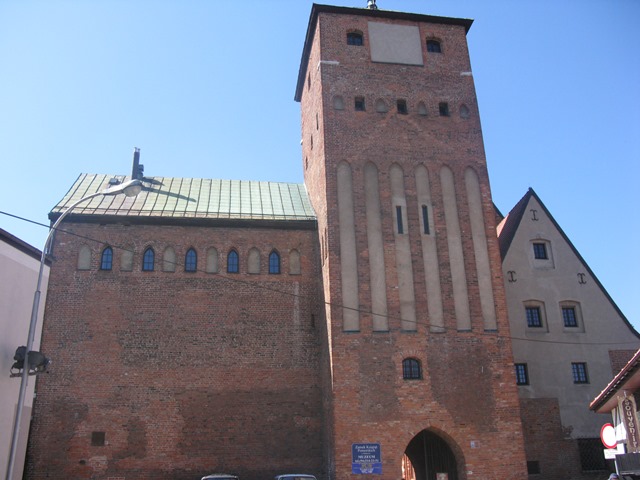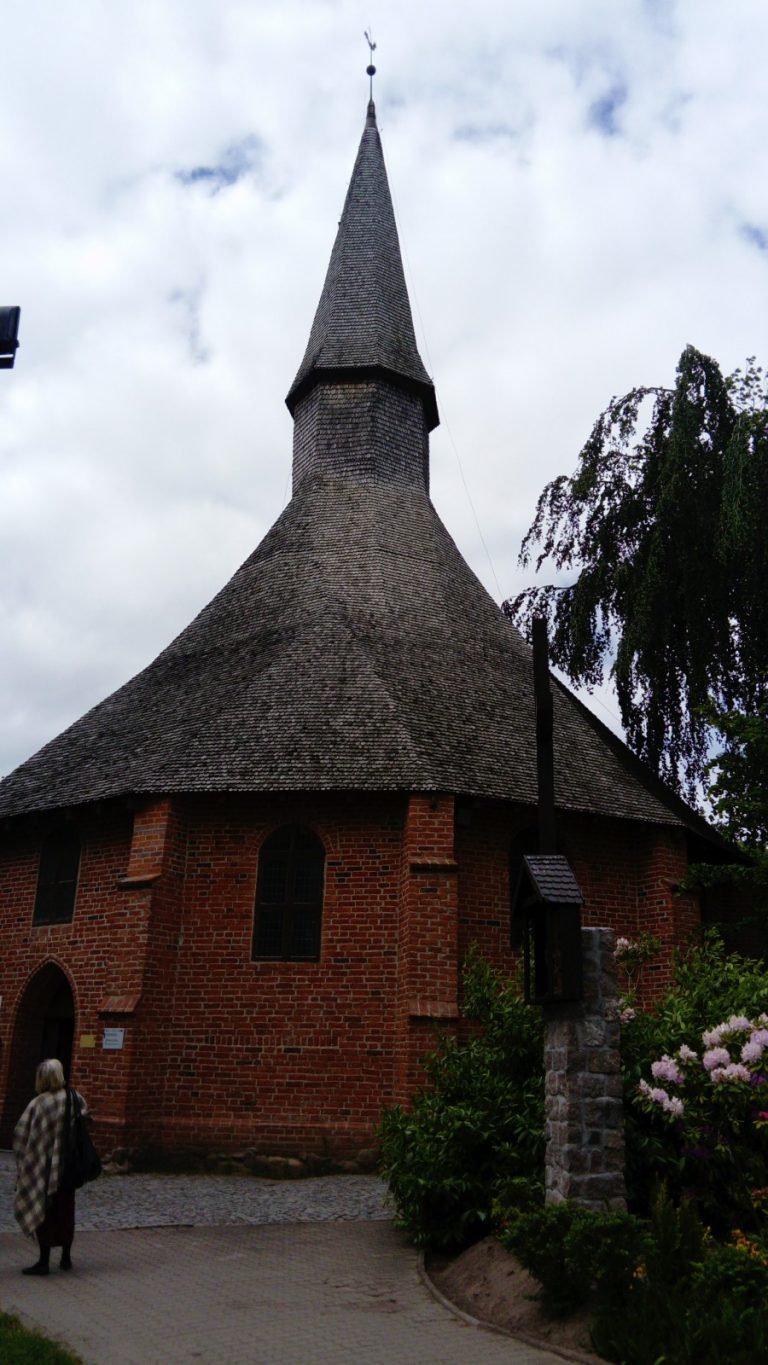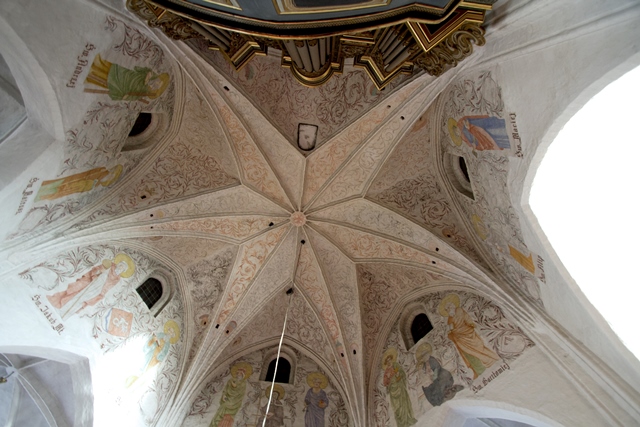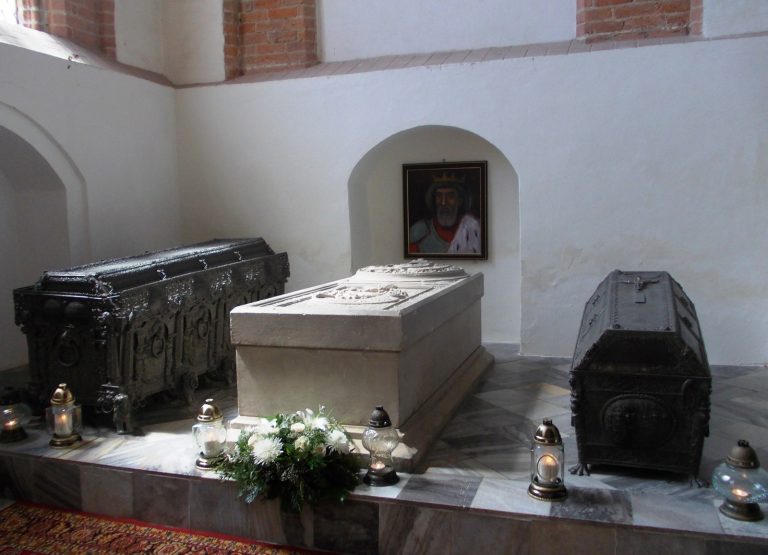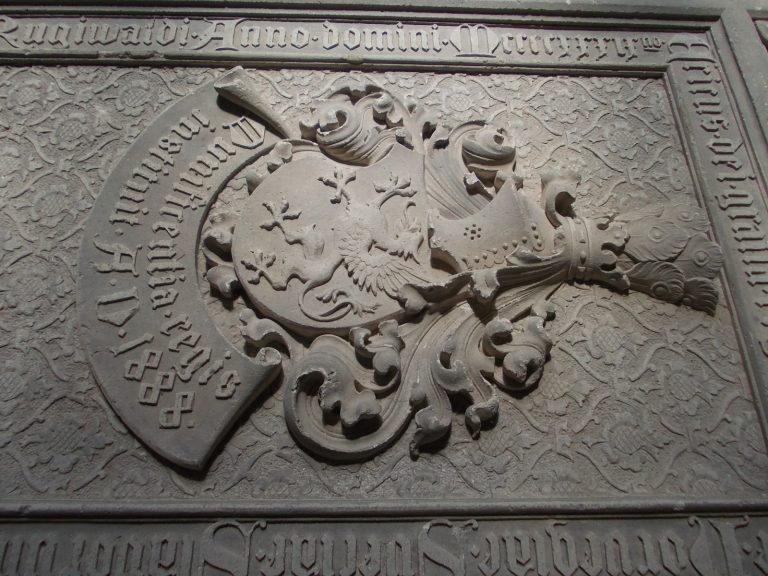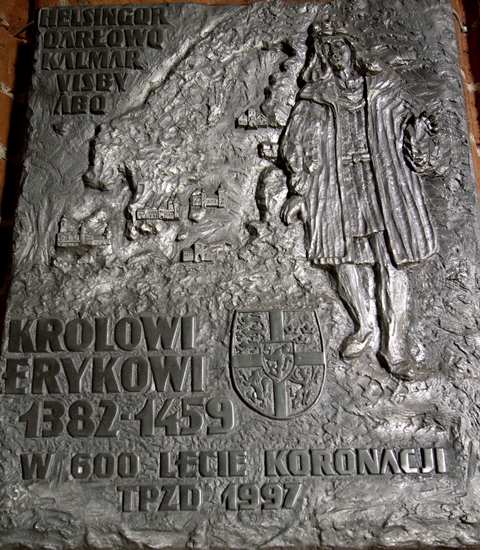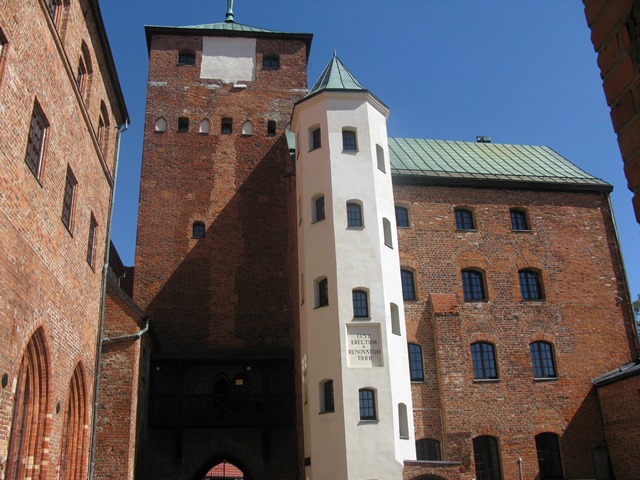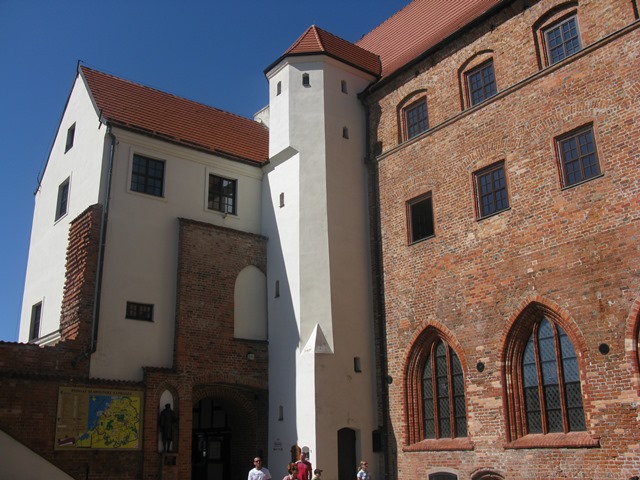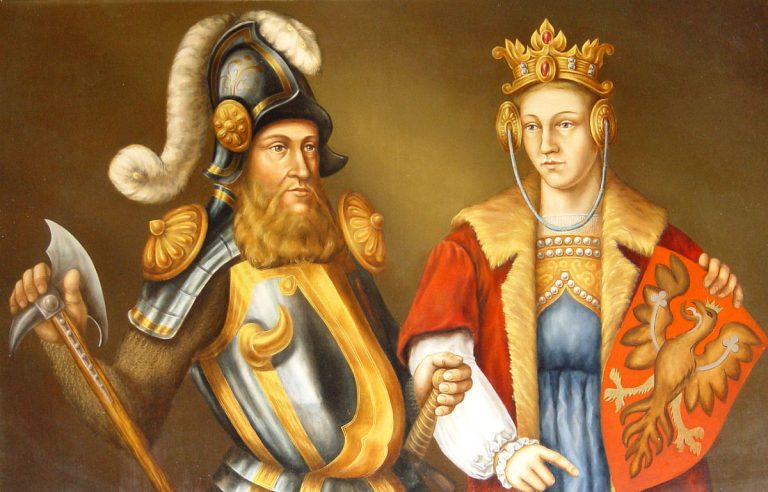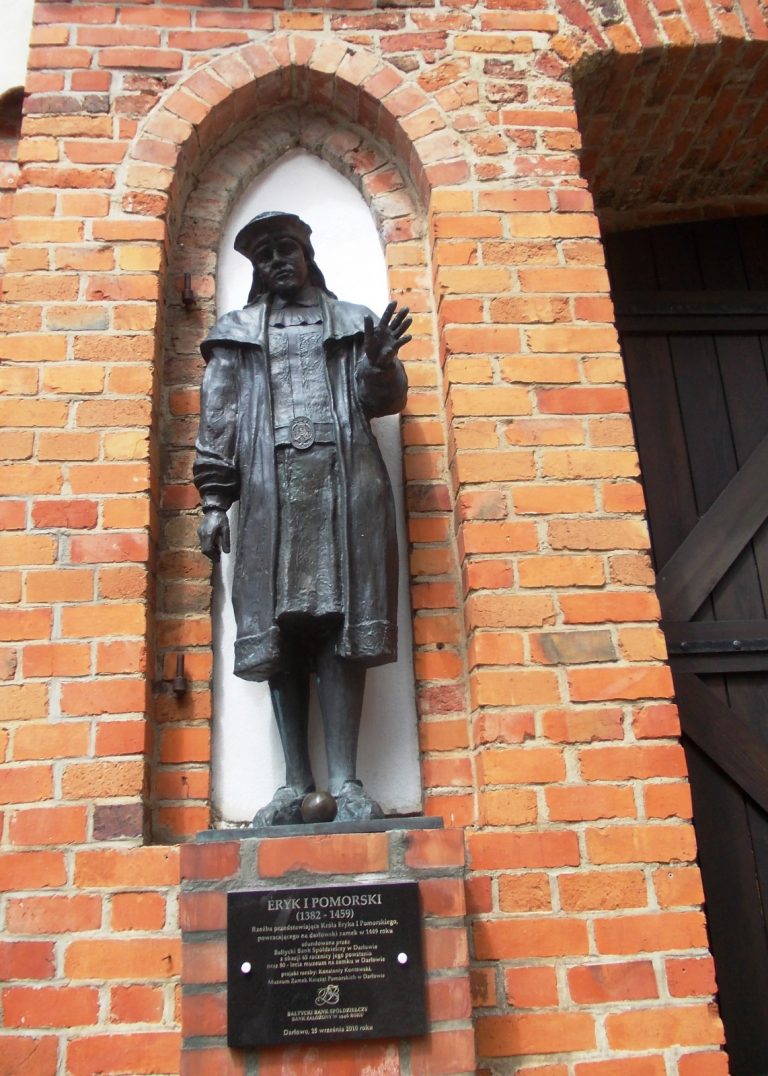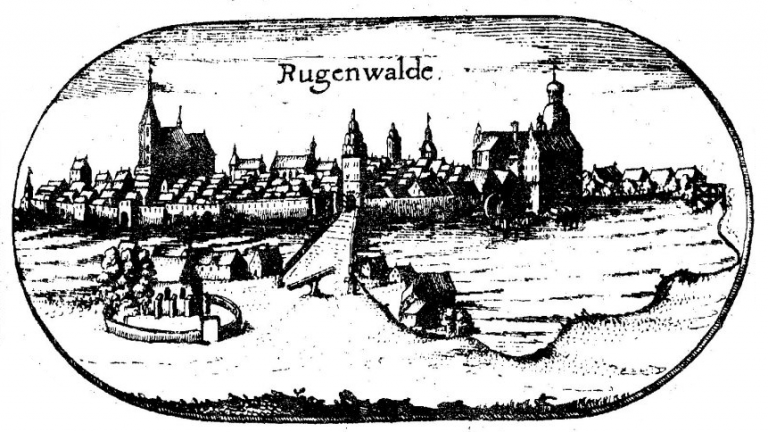LOCATION
Darłowo is a city located by the Baltic Sea in the valley of the Wieprza River and Grabowa River, about 200km away from Szczecin, 170km from Gdańsk and about 100km from Szczecinek. The city is best reached by car. It’s possible to go by means of public transport, but it would take a long time to arrive. The city lays on the West Pomeranian Sailing Route connecting the yacht ports on the Oder River, Szczeciński Lagoon and along the Baltic Sea. You can get there by yacht and stay in a modern marina. The European cycling route EURO VELO 10 and Eurovelo 13 run through the city. 10 16°24’E 54°25’N

SCENIC CHARACTER
The Dukes’ seat in Darłowo was built in the 14th century by Prince Bogusław V, whose wife was Elżbieta, daughter of the Polish King Casimir the Great. The Griffins made a lot of effort to make the castle take on the splendour of a princely residence. The most famous inhabitant of the city was Eric of Pomerania, called the Emperor of the North and the Last Viking of the Baltic Sea, who was born in the Darłowo castle in 1382 r. Thanks to him the city owes its name „Royal Town Darłowo„. The prince from the Griffins dynasty, who was born as Bogusław, at the age of 7 was adopted by the most powerful ruler of Europe – a Danish Queen Margaret I and received a new Scandinavian name – Eric. He soon became the king of Denmark, Sweden and Norway. When an alliance of Scandinavian countries, called the Kalmar Union, was established at the castle in Kalmar in 1397, the young Griffin became its ruler. He wanted to use the location of the places on the Öresund strait to control the navigation in the Baltic Sea. For this reason he built forts for intance in Malmö, Landskrona, Helsingør and Copenhagen, to which he moved the capital of Denmark from Roskilde. He collected duties from the ships passing through the strait, which enabled the cities from the regions ruled by him to get rich. The conflict with the Hanseatic Liga and unequal investments in the cities ruled by him led to the dethronement of King Eric, who after nearly 40 years of ruling settled in Gotland. From there he organized pirate expeditions. Legend says that the treasures he has gathered remain on the bottom of the Baltic Sea to this day. In 1449, he returned to Darłowo and was a Słupsk prince until his death in 1459. At that time, the castle in Darłowo got expanded. A part of the property he gave to his cousin, Zofia, the mother of the future Grand Duke of Pomerania, Bogusław X, during the reign of which the Darłowski castle was expanded even more. The reconstruction of the castle after the fire in 1624 brought further changes. From this period comes the rich equipment of the castle chapel funded by Princess Elżbieta, wife of the last Griffin Duke, Bogusław XIV.
ATTRACTIONS
Darłowo is located by the shore of the Baltic Sea, that’s why it’s a good holiday destination and is visited by crowds of tourists every year. The city has its own unique medieval atmosphere. In addition to the Pomeranian Dukes’ Castle, St. Mary’s church deserves special attention – it contains a chapel with the sarcophaguses of King Eric of Pomerania, Duchess of the Pomeranian Jadwiga of Szczecinek and Princess Elżbieta, wife of the last Pomeranian prince.
In the church make sure to look at the pulpit, which depicts scenes from the Baltic tsunami of 1497, when the sea waves reaching a height of 20m hit the land, destroying everything that they met on their way. From the fifteenth century comes the twelve-sided chapel of St. Gertrude, built in the style of the Scandinavian gothic. Of the 30 rotunda-shaped chapels in Pomerania only four survived (in Darłowo, Koszalin, Słupsk and Wolgast). An interesting tourist attraction at the seaside, located in a part of Darłowo called Darłówek, is a lighthouse and a sliding bridge connecting two parts of the city separated by the Wieprza River. In Darłowo, which lives on the history of Eric of Pomerania, numerous events for children, youth and tourists are organized. The International Meeting of Historic Military Vehicles, referring to the military history of the city from the times of World War II, is also held there.




